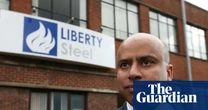Last week, the nonprofit that runs New York City Pride revealed that around a quarter of its corporate donors have either canceled or diminished their support this year. The pullback has result in an estimated $750,000 shortfall for the organization as it gears up for its biggest event of the year.
According to Chris Piedmont, media director at Heritage of Pride, many sponsors cited uncertainty around the economic impact of tariffs as their reasoning for scaling back. Others, though, “expressed concern about potential blowback from the current administration for publicly supporting Pride and other [DEI] initiatives.” It’s a troubling new chapter in a months-long trend of companies that once championed—and, in some cases, profited off of—DEI initiatives, which are now quietly diminishing their support.
The drop in corporate sponsorship isn’t isolated to New York City; it’s happening across the country, from San Francisco to St. Louis, Missouri, to St. Petersburg, Florida. Joanna Schwartz is a professor at Georgia College & State University with a specialty in LGBTQ+ marketing. She says that, while there has been more caution around this marketing in the last few years, the current political climate has made companies especially fearful of the backlash that might come with supporting the queer community.
Amid this climate of capitulation, Schwartz says it’s “more valuable” than ever for companies who truly hold LGBTQ+ support as a core value to stand by the community rather than abandoning it.
Pride celebrations losing sponsorship dollars
In a press release sent to supporters last week, Heritage of Pride said NYC Pride is hoping to raise $25,000 before June 30 to account for its funding gap. While the number of partners supporting the event has actually increased from 70 last year to 76 this year, overall investment has taken a drastic hit.
Spokesperson Kevin Kilbride told the New York Times that PepsiCo, Skyy Vodka, Target, Nissan, and Mastercard are some of the brands that either backed out, reduced their contributions, or asked for their involvement to go unpublicized. In a statement to Fast Company, Nissan said it “is currently reviewing all marketing and sales spending—including select consumer auto shows, sports properties and other entertainment activations—to maximize both efficiency and breakthrough effectiveness.” L’Oreal is the only brand returning from 2024 as a platinum sponsor, contributing $175,000 to NYC Pride.
Meanwhile, small, local, and queer-owned businesses—like Brooklyn Brewery, Mischief Mates, Radiant Light Candles, and the Travel Agency—have stepped up in the absence of larger corporate sponsors.
Still, the organization is in a challenging place as it looks to stage a successful Pride this year. Per the release, a 25% budget gap could mean fewer floats and performers, a loss in grant programs that aid queer New Yorkers, and difficulty hiring security teams.
These are concerns that have been echoed across the U.S. In St. Louis, Anheuser-Busch, a key sponsor of PrideFest for over 30 years, didn’t renew its sponsorship in 2025. After other sponsors also pulled back, the organization was left with a $150,000 deficit. San Francisco Pride organizers told Bloomberg in late April that their event is down nearly $200,000 this year after Anheuser-Busch, Comcast, Benefit Cosmetics, and the liquor brand Diageo dropped their sponsorships. And Twin Cities Pride reported a similar financial shortfall as it waited to hear back from around 30 former sponsors.
In small towns, the impact is felt even more acutely. Eve Keller, co-president of USA Prides, a national network of LGBTQ Pride organizers, told NBC News that some smaller, rural Prides have reported sponsorships declining 70% to 90% compared to the average year.
Piedmont says it’s been “beyond disheartening” to watch corporations bow to public pressure at a time when the queer community, and especially trans individuals, are “under attack now more than ever.” Last week, House Republicans passed a budget bill that a bill that would cut off Medicaid funding for all gender transition care. Experts have called it “an assault” on transgender healthcare. (The bill still has to go to the Senate.)
“We need corporations and partners of all sizes to step up to the plate, stay on the right side of history and support the entire LGBTQIA+ community,” Piedmont says. “We’re here. We’re queer. And we’re not going anywhere. Regardless, our community will do what it has always done—from Stonewall, to Compton’s Cafeteria, to the youth-led trans protests today—we march on.”
Since last week’s news of Heritage of Pride’s budget shortfall, Piedmont says the organization has received nearly $10,000 from almost 100 different donors.
A troubling chapter in a larger trend of capitulation
The retreat of companies like Nissan and Anheuser-Busch, who once served as major Pride sponsors across the U.S., follows a more troubling trend. As the Trump administration pushes to codify its extreme views, brands including Tractor Supply Co., John Deere, Harley-Davidson, Ford, and Lowe’s have walked back DEI efforts.
“Pride parades have typically been a relatively inexpensive opportunity for companies to demonstrate support for their LGBTQ+ employees while hitting a very targeted audience,” Schwartz says. “But in the current political environment, companies are being far more careful about being connected to support for the community because there’s a growing backlash calling attention to corporate efforts at inclusivity, particularly of LGBTQ+ people generally, and trans and nonbinary people in particular.”
This is striking, Schwartz says, in that it feels like a regression to an era when corporate support for the queer community was almost nowhere to be found. When Pride first started out, it was a “kind of grassroots way to acknowledge and celebrate Stonewall.” Only in the last decade or so have companies become more willing to openly sponsor queer events—so much so, in fact, that NYC Pride has previously faced criticism for transforming from a community-focused event into a “corporate party.”
“Part of the benefit of sponsorship isn’t just advertising to the LGBT community, but also showing support for your LGBT employees, so it builds community within organizations,” Schwartz says. “Up until the last couple of years, companies were being more and more supportive of the LGBT community and, to be perfectly frank about it, also profiting off of that, which gets into rainbow capitalism.”
“Rainbow capitalism,” or “rainbow washing,” generally refers to a company’s outward support of the queer community, while not truly backing up LGBTQ+ customers or employees behind the scenes. The perception of rainbow washing is one of the reasons why Target, which spent years promoting Pride Month collections, is facing major financial backlash for its retreat from Pride and DEI efforts at large.
Financially speaking, there was a good reason for companies to embrace the queer community: According to a 2023 study by the investment adviser LGBT Capital, LGBTQ+ people hold an estimated $3.9 trillion in global purchasing power.
“You don’t want to let that part of the community think you just don’t care about it, but unlike every other sub-population in the United States, that’s the one target that, if you advertise to it, you potentially lose other customers,” Schwartz says.
Anheuser-Busch subsidiary Bud Light experienced a similar problem in 2023. After the company released a small ad campaign featuring trans influencer Dylan Mulvaney, conservative critics spread transphobic rhetoric and advocated boycotting the brand. Bud Light shrank away from critics rather than facing them head-on, in turn alienating its queer customers. In 2023 alone, Bud Light lost an estimated $1.4 billion in U.S. beer sales as both conservatives and LGBTQ+ advocates spoke out against it.
Currently, some companies are publicly retreating from DEI initiatives while still maintaining behind-the-scenes initiatives, like support for LGBTQ+ employee resource groups. Schwartz says she’s also noticed a trend of companies being much more careful about how they support the queer community, like avoiding any overt reference to trans or non-binary people, in order to avoid becoming “targets” of conservative media or the Trump administration. She believes this overarching fear is the main reason that many companies are backing out of Pride celebrations this year.
“They’re saying, ‘There’s shifting corporate alignment, and we’re looking at our advertising budgets.’ All of that is just a polite way of a company saying, ‘We’re too scared to do this, and we don’t want to own it because we also don’t want to disenfranchise the LGBT community,'” Schwartz says.
For many LGBTQ+ community members, there’s a feeling that some companies only offered their support when it was convenient, and are retracting it now that the optics are no longer as beneficial. On Reddit, dozens of users are collating lists of companies deemed “fair weather friends” for their recent backtracking.
“The [queer] community has been completely abandoned by a number of major companies, across a lot of brand categories,” Schwartz says. “The current prevailing wind is out of a far more conservative place, and companies are trying not to make anyone mad, but the companies that were really trying to make an easy buck off of the community were the first ones to leave. In that way, there is a little bit more of a purity with the companies that have stuck around.”








No comments